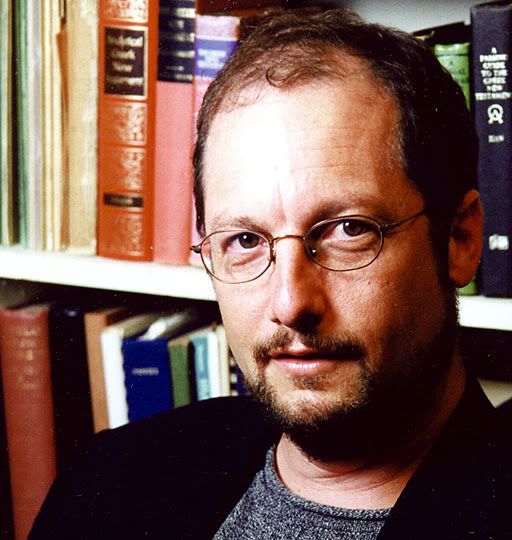
This morning I had the brief feeling like I was living under a rock. Do you ever get that feeling or is it just me? I felt compelled to read the newspaper or something to see what was going on in the world. Since I have no newspaper subscription, I hopped online and checked out News-Leader.com. I checked out a few headlines before finding myself in the Voices section. This can be a real problem for me, one that I have managed to successfully stay away from in recent months. If you've never been there, then I suggest you not go. The people that read that section online and then utilize the comment section are always the same people. It is a small group that I can easily visualize sitting around in a coffee house squabbling over scholarly issues. Before the invention of the Internet, they used to have to meet like this, I'm sure, but now they can squabble in the comforts of their own home or office. And they do so even more heatedly (often offensively) now that no one can reach across the table and transition the oral debate into a physical one.
Anyway, someone had written a letter in response to a printed letter that made statements that claimed the Bible was full of contradictions and errors. I quickly scanned the letter and read what some were saying about it which brought me to a comment that someone left referencing a book that supported the first letter's claim of the New Testament being riddled with errors and contradictions.
This book is Jesus, Interrupted. It's written by Bart Ehrman who has written three previous books, one in which has also received "best-seller" status. I haven't read the book and don't intend really to do so. Therefore, I won't say anything good or bad about. However, I feel like I have a feel for what the book proposes after having read review after review about it mostly recommending the book and hailing it as a great literary work.
One of these reviews, a positive one, states, "At the book's end, Ehrman also tells readers that he went from an evangelist to agnostic because he couldn't relate to a God that allowed so much suffering and evil to exist within the world." I'm sure that virtually everyone has heard this argument made before. At one time, before I found Jesus, I, too, had said these very words myself. It's a common stumbling block among those who cannot wrap their minds around our purpose. Often this statement is followed by, "If God is omniscient and he knows all the troubles that a person will have to endure in a life, then why would he create that life knowing the end result?" This question is a valid one and can be worded half a million different ways. If I may, I would like to take a crack at putting it into perspective.
I admit that parents will comprehend this a little easier maybe than those without children, but it's definitely not beyond their understanding in any way. You may have heard this analogy before. I'm not the author of it, by any means. Let's start with our understanding of the world as we know it. In the U.S., we are pretty fat and spoiled little brats when it comes to a lot, but even we know that the world and our lives are a far cry from a 24/7 amusement park. Even being born privileged, we come to find that our lives are a balance of good times and bad ones. Sometimes the spectrum is extreme or tends to fall to one side or the other. As technology, industry, and even the medical field work to improve the quality of life, suicide rates increase. It's a cold hard world out there and as they say, "only the strong survive."
What kind of person, then, does it make you to willingly bring a child into this struggle? What kind of person does it make you to WANT to bring one in? Now, we, as parents, work hard and sacrifice much to see that our children learn the right things and grow up strong and healthy so that they, too, can be part of the strong survivalists. But, sadly, some of them don't make it. Some get led astray. Some will die. Some will kill themselves. Some will kill others.
You may be saying to yourself, if you have no children, that this is exactly why you don't want any. But, let's see how people get there in the first place. We all know the practice that babies come from. Do you ever engage in this activity? Do you love someone? Do you date people? Do you want to date people?
Our Father in Heaven loves us not unlike a biological one does (or should). He created each of us for a purpose. And He loves us more than any one of us will ever understand. He sets a path for us. He died for us. He is right within arms reach. It is not cruel that he made us. It is a wonderful blessing. There are terrible tragedies in this life, but thank God, that it's not the end.
I'm reminded of a book, God Chasers, that I once went to a book review study group for. It used the analogy of a father teaching a child how to walk. It paints the picture of how a father will be just out of arms reach to prompt the child to want to move toward him, but that when the child does the father moves a step back further prompting more forward movement from the child. It's not cruel for the child, after all the child needs the prompting. When the child falls, the father is there to catch it. Sometimes the child gets mildly hurt in the process, but it's all for the greater good of the child.
We cannot give up when God is teaching us to walk toward Him. We cannot start thinking that He doesn't love us. We cannot start doubting His existence simply because of the lack of a perfect world. He never promised us perfection in this life. Imagine the child that refuses to be taught. Imagine a child that sees every step the father takes backward as a retreat from loving it. Once you get in this child's head you realize that its thought is not that much different than so many people's reasoning today.
I am forced to question the motives of people like Ehrman, who write not to build but to destroy. True Christians want to tell the world the good news because it helps people. They want to get people on board because it stands to help the people getting on board. Ehrman and other writers write not to get people on board for their own benefit, but rather they write to get people on board so that they feel better about their own beliefs. How comforting it may be to get people to believe what you believe all for the sake of not being alone in your thinking.













